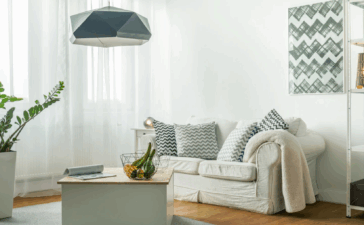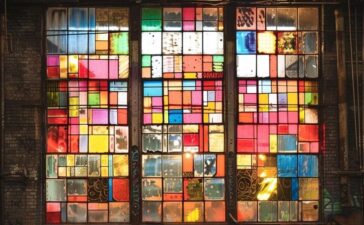A home is a place where life is. Almost every house has stairs, and the part of the staircase you physically step on is called treads. Whether you live in a big or small house, or whether you are renovating or building your house, one of the most important considerations is your staircase design and type. What type of stair treads options are available and how you are going to choose, after reading this useful article you will get to know the best options available and your choices. The various choices include metal stair treads, wood treads, glass treads, etc.
So, before traveling up and down in your home, “watch your steps” and keep climbing!
Types of Stair Treads:
If you want to choose the types of stair treads, you must be clear about the modern, traditional, or contemporary styles. Then comes the types of material and that matters a lot. Some of the options are:
- Metal treads
- Wood treads
- Glass treads
- Tile treads
- Composite treads
- Stone treads
How to choose the material of stair treads:
We will have a look over various types of stair treads and some of the pros and cons of each type to make your choice easy. Different types are suitable for the place as well. Industrial, commercial and residential setups require different tread systems.
Metal Stair Treads:
Metal or steel stair treads are very strong and stylish options. Steel is an alloy made up of iron, carbon, and other materials. The steel used for staircases can be primed and painted as well. They are galvanized to prevent rusting. metal tread systems are fire resistant and highly durable. They are mostly suitable for spiral staircases. To avoid any slip, they are given with the perforated surface, diamond plate surface, or metal grating.
Types of Metal Treads:
1. Steel Treads:
They are used for outdoor and industrial staircases. They have bar grating, diamond pattern, and abrasive coating. It is the best option for commercial and apartment buildings and parking garages.
Pros:
- Very strong and weight resistant.
- Extremely durable.
- Corrosion, rot, and pests resistant.
- Patterns can be made.
Cons:
- They can be slippery. Slip protections like diamond coating or abrasive plating are used.
- The use of serrated treads is preferred for outdoor applications.
2. Aluminum Treads:
Aluminum is a light, durable, and functional silvery-white metal that is the key metal of today’s engineering world. It’s naturally corrosion resistant which makes it very effective, aluminum stair treads are widely used in industries, commercially and residentially. Aluminum treads are installed usually in fire escapes, stairs for machinery, residential gardens, or deck stairs. Due to its lightweight, it is the best choice for roof stairs, ship stairs on boats, and chemical industries
Pros:
- Durable for more than 30 years.
- It’s 50% lighter than steel thus for movable stairs it’s an ideal material.
- Due to its environment-friendly and antibiotic properties, it is highly recommended in food processing environments.
Cons:
- Aluminum treads are comparatively expensive.
- They are less resistant to weather and scratches and dents.
3. Stainless Steel Treads:
Stainless steel is made from iron and carbon in a two-step process. It contains 11% chromium and other alloying elements such as nickel which makes it a corrosion-resistant element. It is also highly resistant to heat and thus used in cooking equipment and food applications.
Stainless steel treads are high-quality treads and that’s why it’s a bit expensive. But for certain conditions and environments, they are the option installed for chemical applications, food production, cooking, and other high-heat and corrosive environments.
Pros:
- Immune to rust and corrosion.
- Resistant to heat.
- Hassle-free and easy cleaning than carbon steel.
Cons:
- Very expensive as compared to other metals.
- Heavier than carbon steel and aluminum.
Wood Treads:
Wood treads are preferred for the interior of your house. It is most commonly used in private residences. There are many wood species available to get your staircase built with. It is also important to consider the wood grain, swan, and construction. Some of the wood species are red oak, white oak, hard maple, walnut, etc.
Pros:
- Very affordable.
- It adds natural beauty and value to your home.
- Wood treads are a more safe option for children and older people.
Cons:
- Prone to pests and damages.
- Need regular care.
Glass Treads:
When you go for the glass treads option, you have numerous options regarding colors, styles, textures, and finishes. Though fragile, it gives a classy and stunning look to your house, and LED lighting would be the cherry on the top to create a substantial effect on the staircase.
Pros:
- Glass treads give a more spacious and beautiful look.
- LED lights create a dramatic effect.
- They won’t deteriorate and are not very expensive to maintain.
- Unlike wood, they are water resistant.
Cons:
- They can break or shatter if the low quality is used.
- Regular checking is required to look for any cracks as they are not much durable
- Difficult to install, expensive installation and regular cleaning is required.
Tile Treads:
Tile treads are an attractive and durable option for stairs. It is a good alternative to wood as well. It is usually found in commercial buildings and homes.
Pros:
- No oil is needed.
- No decay or insect attraction.
- Easily affordable.
- Easy to maintain and highly durable.
Cons:
- They get cold in winters.
- They are very slippery.
Composite Treads:
This material( concrete; rock, sand, or gravel) is a good choice for office and house stairs. Composite treads are long-lasting and require less maintenance. They are found outdoors and as a base material as well.
Pros:
- Very long-lasting and the least maintenance is required.
- You can give it any shape like a spiral, curved or straight.
Cons:
- Messy and expensive.
- Look less attractive or dull.
Stone Treads:
Stone treads, especially bluish silver stone treads are in demand for outdoor stair applications. Limestone is also popular. They normally have a thickness of 2 inches. They are durable and pretty looking and require minimal maintenance.
Pros:
- Extremely durable for hundreds of years.
- The least maintenance is required.
- Stone treads are good for the outdoor environment as they blend with the landscape.
Cons:
- Heavyweight stones require machinery for installment.
- Uneven surfaces may trigger tripping.
Make a Wise Choice:
In the above read, you have gone through the types of stair treads available and how you choose among them. You can also take recommendations from professionals and engineers for the right suggestion. But certain environments surely need metal stair tread systems that are durable, safe, and economical. With DONGFU PERFORATING, you get a vast variety of quality metal stair treads and we are always open to satisfy your queries.
Wish you all the best in your choice.
STEEL stair treeds
ALUMINIUM STEEL TREEDS





